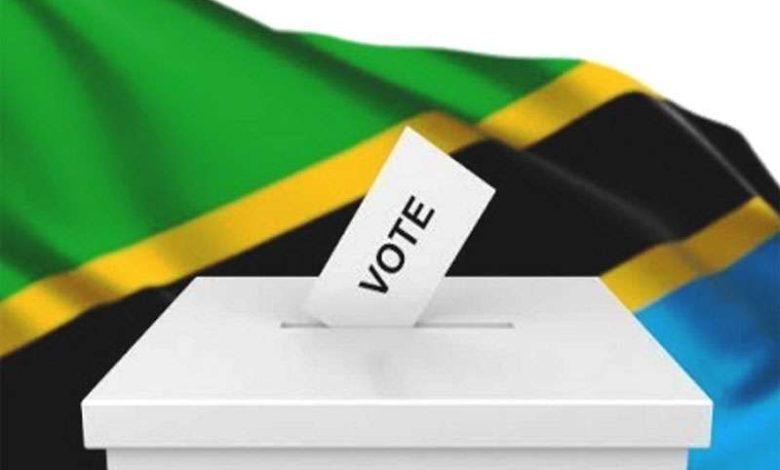Africa-Press – Tanzania. AS Tanzania gears up for the forthcoming General Election in 2025, first-time voters are being encouraged to take their civic responsibility seriously, engage thoughtfully in democratic processes and reject divisive political narratives, especially during campaign periods.
In interviews with the Daily News, a cross-section of stakeholders, including digital rights advocates, political analysts, youth leaders, and students, emphasised the crucial role that first-time voters play in shaping the nation’s future.
Digital Rights Consultant, Trainer, and founder of the podcast platform ‘Dig It With Imani’, Ms Imani Luvanga, described voting as a constitutional right that should never be ignored or taken lightly.
She urged young voters, particularly those heading to the ballot for the first time, to exercise sound judgment, remain vigilant and not fall for manipulation from political candidates during the campaign season.
“Voting is not just a right, it is a responsibility,” Ms Luvanga said in a telephone interview. “Everyone has their own will, and in a democratic country like Tanzania, the decision to vote or not ultimately lies with the individual. However, I don’t believe that political parties or even the government have the power to influence or restrict a person’s constitutional right to vote.”
Reflecting on her own experience as she prepares to cast her vote for the second time, Ms Luvanga advised first-time voters to critically analyse party manifestos and assess the qualifications of individual candidates before making any decisions. She emphasised that voters should be guided by vision and reason not empty promises or partisan bias.
Ms Luvanga also highlighted the growing influence of social media in political mobilisation, cautioning youth to use digital platforms wisely. She said that while social media has opened new spaces for political expression, it also presents risks when used irresponsibly to spread misinformation.
“As it is offline, these divisive campaigns exist online as well. In fact, I would argue that online campaigns can be more intense because things go viral quickly, often without verification. Every post, comment, or video shared can impact someone’s perception, so it’s important to be cautious and respectful,” she said.
She called on youth to foster constructive dialogue online and avoid falling into the trap of polarised rhetoric. “Let’s engage responsibly and ensure our discussions promote national unity, respect, and development.”
Echoing her views, a Dar es Salaam-based political and social affairs analyst, Mr Kenneth Baga said he would like to remind young voters that democracy is not only about casting a vote but also accountability and being part of the leadership process.
He encouraged young Tanzanians, including first-time voters, to also consider standing for various positions in the election if they meet the requirements.
“Voting is a constitutional mandate and a democratic responsibility,” said Mr Baga. “It should not be sacrificed or traded for short-term interests. We must remember that elections offer us a rare opportunity every five years to choose leaders who will shape our lives, institutions, and direction as a country.”
Mr Baga urged parents and guardians to become more involved in guiding the youth during election periods. He said discussions on civic duties such as voting should start at the family level to nurture a politically aware and responsible generation.
“The emphasis on youth engagement in elections must begin at home. Parents and guardians should talk to their children about their own experiences in past elections. These discussions help shape the perspectives and maturity of young voters,” he noted.
He further argued that boycotting elections as a form of protest is not a productive exercise in democracy.
“Failure to vote simply opens the door for unqualified or unpopular candidates to get elected. If you do not vote, you have no moral ground to complain about leadership.”\
Meanwhile, Ms Mary Kiria, Founder and Chairperson of the Ladies of Value NGO, stressed the importance of participating in an election process that only happens once after every five years.
She said the opportunity to choose leaders must not be wasted, particularly by young voters who will live longest with the consequences of current political decisions.
“Election is a constitutional right for every citizen to vote and to be voted for. First-time voters should take this seriously. Assess candidates carefully and prioritise those with strong, realistic policies that can benefit the broader public,” she said.
Ms Kiria warned young voters to avoid being misled by superficial narratives or campaign hype. Instead, she called on them to demand accountability, integrity, and vision from all candidates.
A third-year student of Political Science and Public Administration at the University of Dar es Salaam (UDSM), Donard Jeremiah, expressed excitement and determination to cast his vote for the first time.
He said that elections are a vital pillar of democracy, and that every citizen should contribute to nation-building by participating.
“I believe voting is a powerful tool, and I intend to make my vote count. I’m planning to follow the campaigns closely, listen to policy proposals, and choose leaders who can truly deliver,” said Mr Jeremiah.
He called on fellow students and young citizens to become active participants not passive observers in the democratic process.
“This is our chance to shape our country’s future. Let’s not waste it,” he said.
As the country prepares for the 2025 General Election, the Independent National Electoral Commission (INEC) and various civil society organisations are expected to roll out extensive voter education campaigns to raise awareness, particularly targeting first-time voters.
These efforts are aimed at promoting peaceful and informed participation, as well as curbing the spread of misinformation during campaigns.
For More News And Analysis About Tanzania Follow Africa-Press







